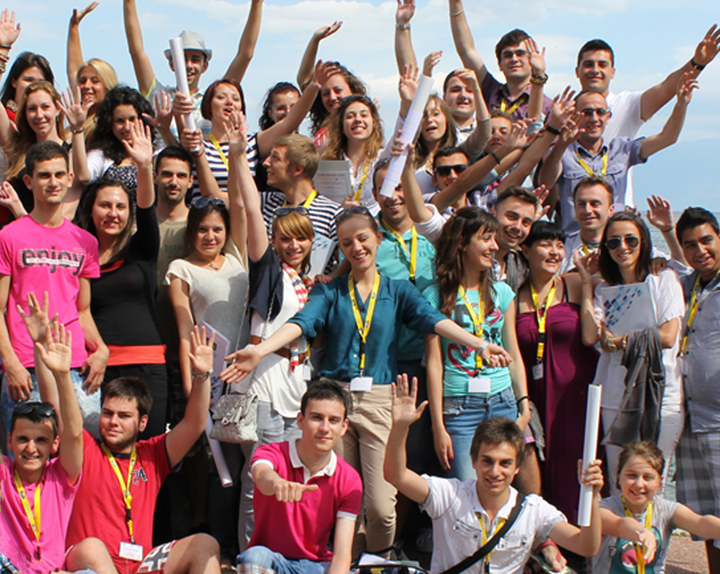

Young Macedonians reach across ethnic divides

“They say we are surrounded by Albanians, Roma, Serbs, this and that... No! I am surrounded by people! People who think, act, socialise and create their own world, their perfect world in which they live.”
This is how Bojan Stojkovski, a youth activist from the northern Macedonian city of Kumanovo, describes the multi-ethnic country he lives in.
Stojkovski, whose region was the site of an armed conflict between ethnic Macedonians and ethnic Albanians in 2001, recently took part in an MDG-F-backed workshop to help youth from across the country break down cultural barriers and learn, share experiences and socialise with young people from other communities.
“This conference is a unique opportunity for young people from different ethnic backgrounds to discuss the challenges they face, at the same time strengthening their capacities…to become active community members and initiate changes in the society,” said organizer Sreten Koceski of the workshop, which was held in the multiethnic city of Struga.
Schools in Macedonia are increasingly segregated along ethnic and language lines, which has created tensions and prejudices among young people from the country’s Albanian, Macedonian, Roma, Serb and other populations.
The youth conference, “Shared Visions”, is part of the MDG-F-funded UN effort to reduce disparities and improve relations among Macedonia’s communities, including working in classrooms and schools to teach young people about dialogue and conflict resolution. Reaching out to and empowering marginalized groups is central to the MDG-F’s strategy to help governments achieve the anti-poverty Millennium Development Goals.
At the Struga conference, participants learned how to advocate for peace initiatives and to recognize and react to hate speech. They also discussed the role of traditional and new media in promoting understanding, and posted multilingual status updates on their Facebook pages such as: “Same under the same sun”, “Don’t be afraid, get to know me, we are the same”, “Different, but equal” and “The Berlin wall was demolished, what about the ethnic one?”
Grouped in city teams, the young people also came up with action plans to implement after the conference. Some of the actions included: organising multiethnic youth festivals, using social media to promote peace and tolerance, and monitoring and discouraging hate speech in social media.
“I think that such conferences are needed to emphasise the beautiful mosaic of different people, different beliefs, hopes or dreams in our country”, said Liridona Veliu, a student from the western city of Kicevo. Antonio Trajkovski, a member of the UNESCO Club at FON University, agreed. “I see that relations among us are based on personality and humanity, not on differences of any type”.
*************************************************************************************************************
The youth conference “Shared Visions” is part of the joint UN Programme to Enhance Inter-Ethnic Community Dialogue and Collaboration in the former Yugoslav Republic of Macedonia. The Programme assists the central Government, local bodies and civil society to improve relations between the country’s ethnic groups in the three key areas of governance, education, and society. It is implemented by UNDP, UNICEF and UNESCO with financial support from the Millennium Development Goals Achievement Fund (MDG-F), and operates at the national level and in three ethnically diverse municipalities: Kicevo, Kumanovo and Struga.
The MDG-F supports programmes like this one in 19 conflict-prone countries around the world as a way to solidify the peaceful conditions crucial for achieving the Millennium Development Goals.